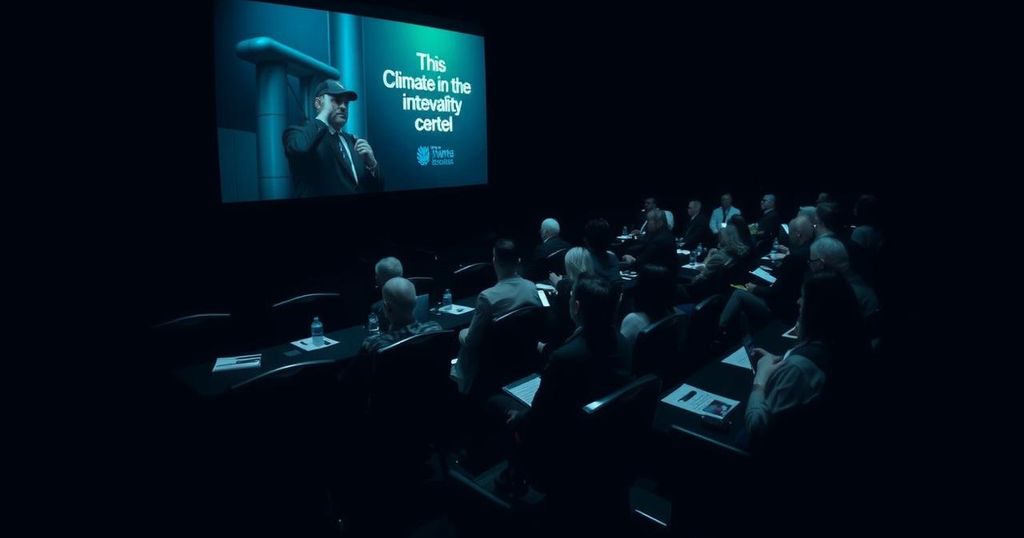COP29 must prioritize climate justice, acknowledging that the poorest nations, which contribute least to greenhouse gas emissions, suffer the most from climate change. Historical exploitation by wealthier nations has resulted in significant inequities. To address these issues, developed countries must provide support via climate finance and technology transfer, ensuring equitable representation in future climate policies. These actions are essential not only for ethical reasons but for mitigating the growing crises stemming from climate change.
At COP29, the critical issue of climate inequality must be prioritized, as those most affected by climate change contribute the least to its causes. Historically, wealthier nations have profited from ecological exploitation, impacting countries in the Global South, which struggle to combat climate impacts despite having minimal responsibility for emissions. It is particularly poignant that the wealthiest 10% of the global population contributes nearly half of total greenhouse gas emissions, whereas the developing nations, encompassing roughly half of the world’s population, account for merely 12%. The recent election of climate skeptic Donald Trump as President of the United States exemplifies the ongoing political hurdles faced by climate advocates. Concurrently, actions such as those of Azerbaijan’s COP29 delegation, seeking to leverage the event for oil investments, undermine efforts to achieve genuine climate justice. As extreme weather events ravage the Global South, the call for equitable transition and climate justice grows louder. Despite progress from past Conferences of the Parties (COP), the notion of climate justice remains contentious and inadequate in effectively addressing the disparities faced by developing nations. As a legal historian and human rights scholar currently engaging in research to tackle climate injustice, I posit that COP29 represents an urgent opportunity to place climate justice at the forefront of international climate action. The framework of climate justice acknowledges the ethical responsibility of affluent nations to mitigate their emissions while supporting those most affected. Discussions surrounding climate change must incorporate voices from the populations suffering its dire consequences. To facilitate the development of sustainable practices, developing nations require assistance to avoid exacerbating the environmental conditions perpetuated by historically industrialized countries. Such support could materialize through climate finance and technology transfer, following the 2009 commitment of developed nations to provide $100 billion annually for climate action by 2020—a goal that was not realized until 2022. A comprehensive approach to climate action demands the recognition of these inequities, ensuring equitable representation of poorer countries in decision-making processes regarding future climate solutions. Climate justice advocates call for a fair allocation of resources and benefits derived from climate action, integrating these principles into global trade and financial systems. Existing initiatives, such as the Green Climate Fund and the UN’s Loss and Damage Mechanism, create foundational frameworks, yet they must be strengthen due to their current limitations. The impetus for climate justice may come from enlightened self-interest; as climate crises push displaced individuals from the Global South towards wealthier regions, benefits to developed nations from addressing these crises become apparent. Assisting countries in managing climate impacts can reduce the number of climate refugees, thus fostering stability and decreasing the potential for socio-political tensions stemming from migration. COP29 discussions will focus on enhancing climate finance mechanisms targeted towards under-resourced nations, reinforcing that such investments are not merely acts of charity, but essential contributions to the collective welfare of humanity, as noted by UN Secretary-General António Guterres. These dialogues provide a renewed chance to advocate for climate justice through equitable funding dedicated to mitigation and adaptation efforts.
Climate change presents a significant challenge characterized by its disproportionate effects. Historically, nations in the Global North, by exploiting resources, have accumulated wealth while contributing highest to greenhouse emissions, leaving developing nations in the Global South more vulnerable to climate impacts. The ongoing dialogue surrounding climate justice aims to rectify this imbalance by addressing the needs and voices of those most adversely affected. COP29 is a critical venue for addressing these themes, highlighting the importance of equitable participation and accountability in international climate discussions.
The ongoing discussion at COP29 must pivot towards addressing climate injustice, emphasizing the unequal distribution of responsibilities and impacts of climate change. Wealthy nations must acknowledge their role and provide necessary support to developing countries, facilitating the transition to sustainable practices. Acknowledging the profound link between climate action and global equity is imperative to crafting effective, fair solutions that can protect our planet and support those most in need.
Original Source: theconversation.com






